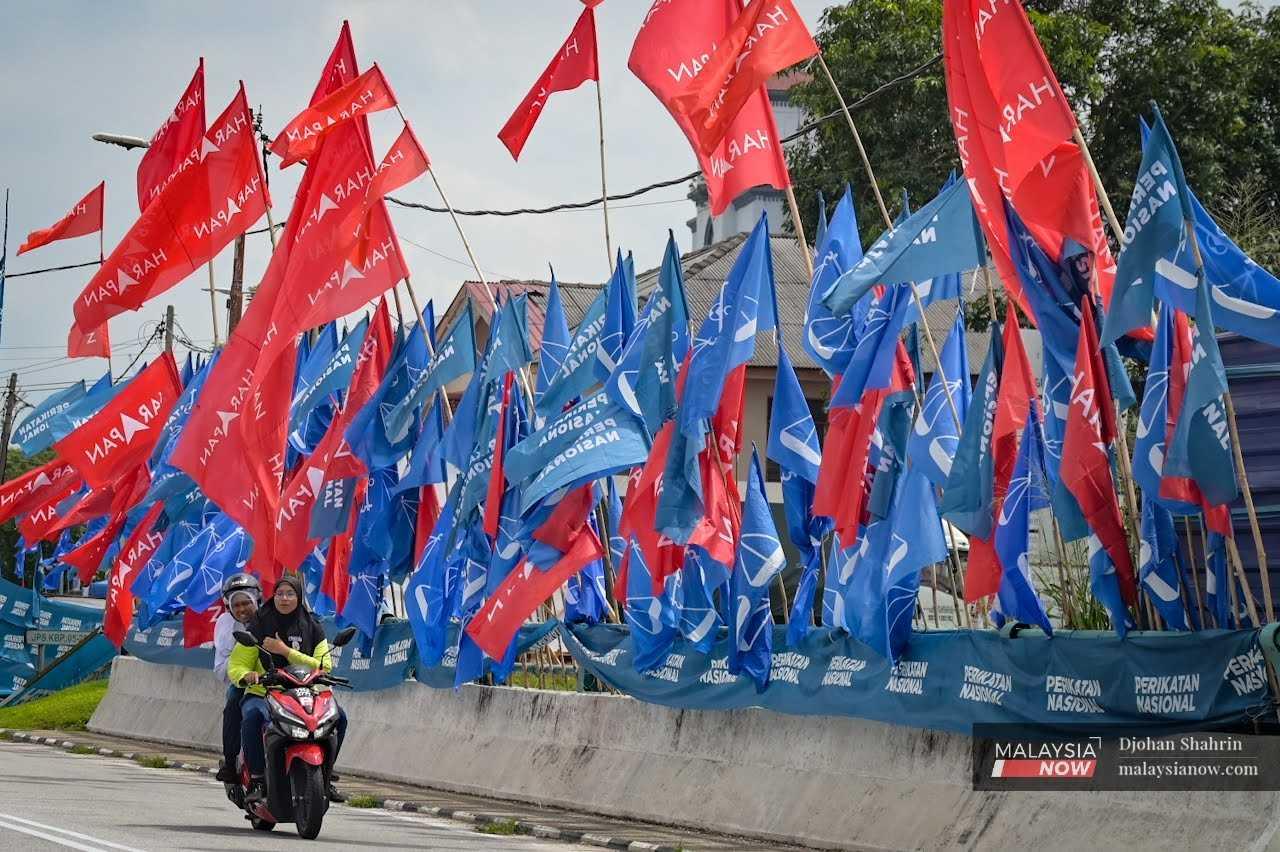Rhetoric war looms in election-facing states
Analysts expect a wide range of issues to be raised by both sides of the political divide ahead of the six state elections to be held this year.
Just In
Political analysts predict a range of issues to be raised at this year's state elections, with Pakatan Harapan (PH) widely expected to join hands with Umno in a reflection of their cooperation at the federal level to take on Perikatan Nasional (PN).
Mazlan Ali of Universiti Teknologi Malaysia said the parties in the coalition government would likely focus on political stability and the need for a steady hand at the wheel to address the issues on the ground.
"Matters related to corruption may also be raised, due to the claims that PN misused some RM93 billion in economic stimulus funds during the Covid-19 pandemic," he added.
"And the issue of racial unity, where the opposition parties are said to be more focused on race and religion while the government parties say that they are united, throughout the peninsula as well as Sabah and Sarawak, in an administration that symbolises Malaysia's multiracialism."
On the opposition front, meanwhile, he said PAS and Bersatu are expected to play up economic issues such as the government's ability to deal with the cost of living and price hikes.
"They, too, will focus on corruption and integrity," he said. "They will say that Anwar Ibrahim, as prime minister, is willing to compromise with Umno and even appoint Umno members to his Cabinet.
"They will say that PH has violated its principles by accepting kleptocrats."
Elections will be held in six states this year: Kelantan, Terengganu, Kedah, Selangor, Negeri Sembilan and Penang.
Anis Anwar Suhaimi, a chief researcher at O2 Research Malaysia, said the attention would be on the efficiency of ministers in managing their respective portfolios.
"Some of the ministers in the cross hairs in this regard, aside from the prime minister himself, are Economy Minister Rafizi Ramli, Youth and Sports Minister Hannah Yeoh, and Communications and Digital Minister Fahmi Fadzil," he said.
He also cited proactive measures taken by ministers such as Anwar's announcement that he works even on holidays, and surprise on-site visits by Transport Minister Anthony Loke.
He, too, said that religion would be a key issue, while in Selangor and Penang, the target would be the management of water and environmental matters.
"Meanwhile, development and flood issues will be used as ammunition against PN, especially in Kelantan," he said.
Malay support
In terms of support, Mazlan said he expected no sudden change in the Malay backing for PN, especially in northern states and those in the east coast which saw the biggest surge of support for the coalition at the 15th general election (GE15).
PN, anchored by Bersatu and PAS, won 74 parliamentary seats, trailing PH which won 81. In terms of individual parties, however, PAS won the most seats, sweeping 49 including six won by Bersatu under the PAS banner, and dominating nearly 43% of Malay-majority constituencies against Umno (23%) and PKR (11%).
With Malay support for PH seen as on the decline, any cooperation with Umno would likely see the Barisan Nasional (BN) lynchpin tasked with winning over the ethnic community.
But with support for the once-dominant Umno on the wane as well, the extent to which it can play this role remains to be seen.
Anis said Umno would have to achieve three key goals in any partnership with PH for the state polls.
Firstly, he said, it would have to ease the decades-long animosity among its supporters towards PH, particularly DAP.
It would also have to convince the Malays to turn out to vote, especially in seats contested by its federal-level colleagues.
And thirdly, it would have to take the helm in Malay-majority states such as Kedah, Terengganu and Kelantan.
PH, on the other hand, would be evaluated on its performance in Selangor, Penang and Negeri Sembilan, he said.
"Umno will need to prove that it can win in PN-held states while strengthening the positions of their PH government partners."
Mazlan meanwhile was optimistic about the chances of Umno-PH at rallying Malay votes.
He said such a collaboration could help both parties wrest more seats in the north, although they would still face an uphill task in the east coast.
"What more to take those states," he added. "But Kedah or Perlis, I think those states can be taken."
Subscribe to our newsletter
To be updated with all the latest news and analyses daily.
